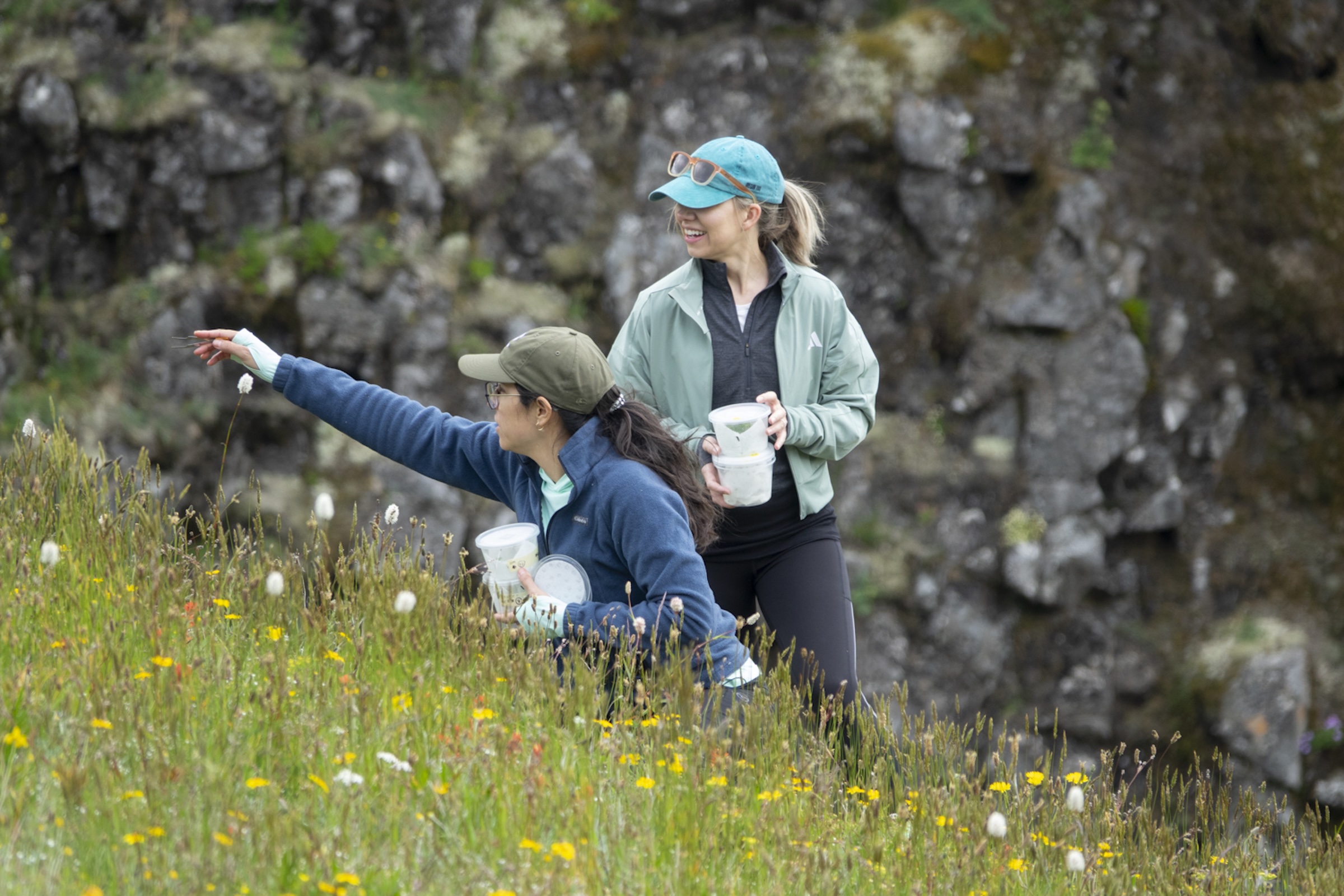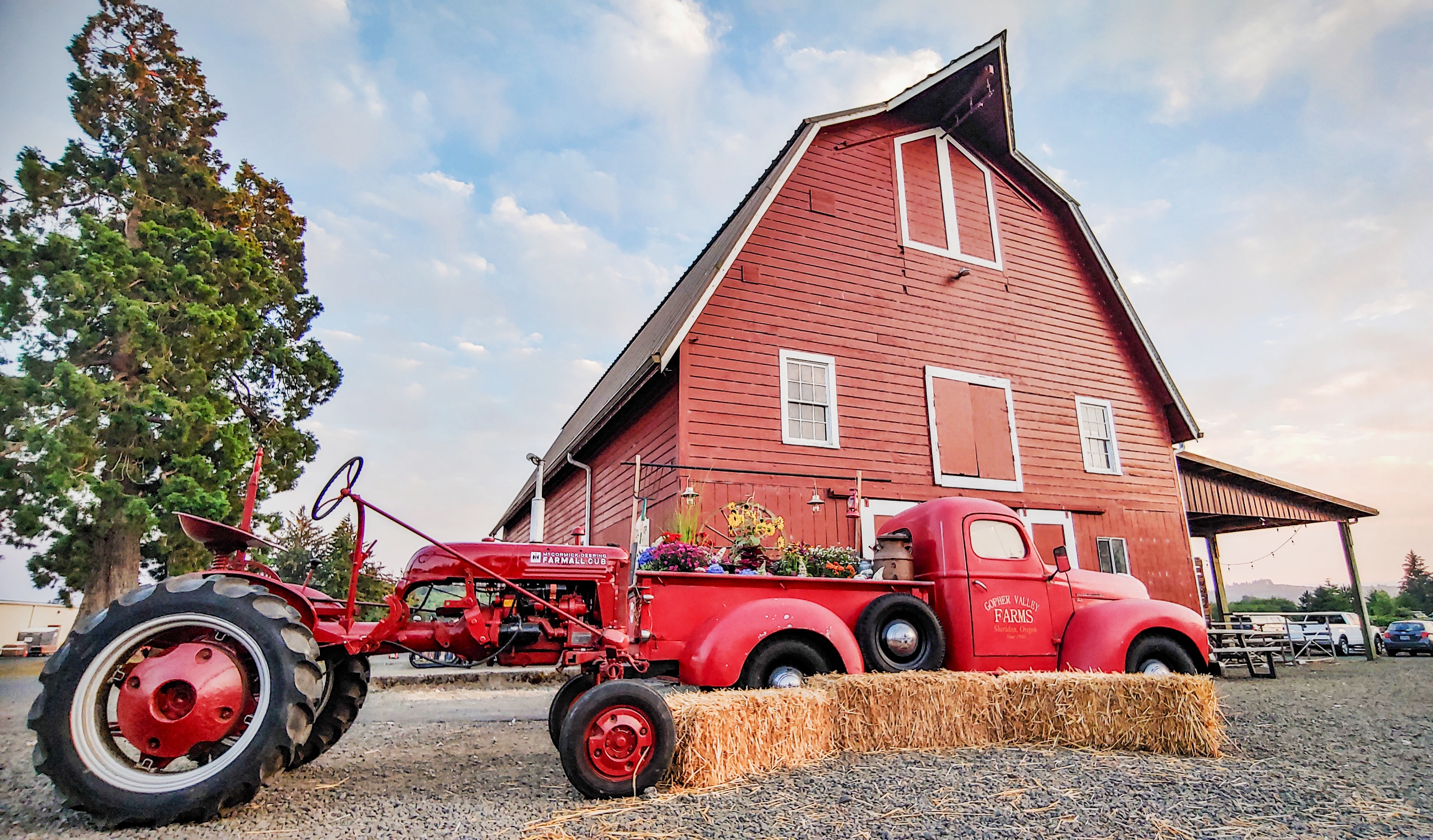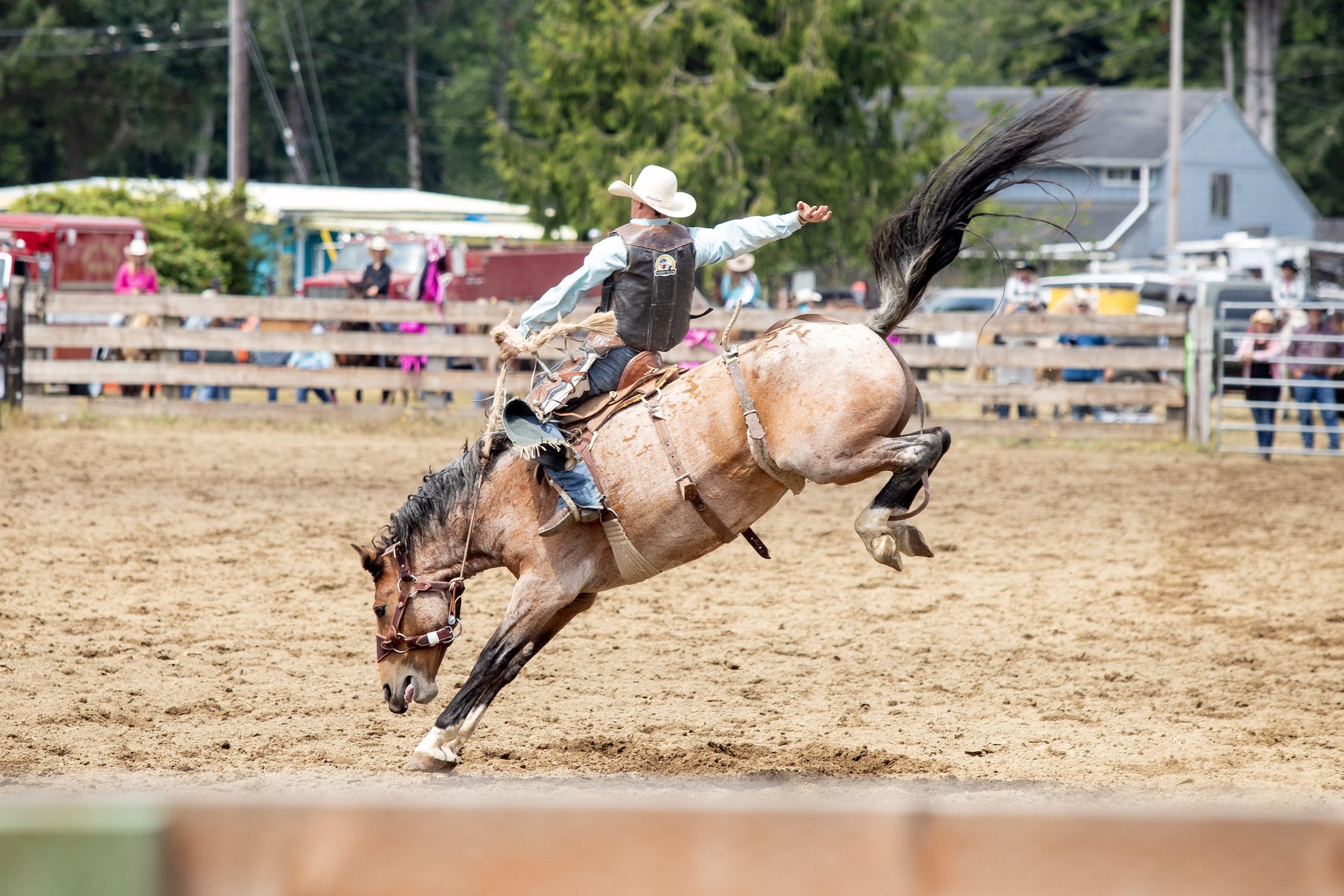On the coast, sustainable tourism gains a foothold
Published 9:00 am Friday, March 24, 2023

- Produce shelves at Wild Grocery and Cafe showcase farm-fresh items like green beans from River City Flower Farm.
Like a miner panning for gold, Chuck Toombs dipped a pool net into one of several white tanks at the Port of Garibaldi. He pulled up what he hopes will be the future of sustainable protein worldwide — a pile of designer seaweed, its shade a deep burgundy.
Trending
“This couldn’t work if it was in Texas,” he said. “People go: Seaweed? Oregon? They’re weird. This is cool. This works.”
The North Coast is uniquely suited to take on new, sustainable ideas in business and recreation thanks to decades of community effort and development. For his part, Toombs hopes to bring forward innovations in the region.
“The exciting thing to me is not just coming out with a product where you can make money — that’s really important — but if you can just give the people the value of the fact that if you eat this you are reducing your carbon footprint, to the amount that matters to you,” he said.
Trending
Toombs got into the seaweed business by chance. In 2015, he was looking for an on-campus research project that might inspire his business students at Oregon State University. He found himself in the Hatfield Marine Science Center. There, he found researcher Chris Langdon’s strain of dulse seaweed, originally designed to feed abalone.
Toombs thought of kale, a food previously akin to a garnish in the mainstream, that within recent years became a staple in vegetable drawers.
Langdon’s strain of seaweed was full of both protein and potential for more uses. When the university’s food innovation center discovered it tasted like bacon after a dip in a deep fryer, dulse went viral.
Seven years later, Oregon Seaweed offers a carbon-negative, protein-rich product that grows four times faster than soybeans. Toombs doesn’t consider himself an environmentalist, but he also doesn’t want to contribute to climate change.
“I’m looking at this as a marketing issue. If you want to be successful, you have to change the story around. And the way to do that is we have to come up with a better product at a better price. And then the market will move,” he said. “Because if I come up with a better product than soy and it tastes better, and it’s cheaper, and oh — by the way — it saves the world, who’s not going to do it?”
Oregon Seaweed is sold at several local shops, including at the Astoria Co-op, Fishpeople Seafood in Ilwaco and Food Roots in Tillamook. “We think eventually it can sit next to kale in produce,” he said.
Playing a part
Visitors don’t need to be business owners, however, to contribute to sustainable efforts on the North Coast. Sustainable tourism, the concept that visitors can contribute to the landscapes and ecosystems they enjoy, is on the rise across the region.
It’s an idea that The North Coast Tourism Management Network, part of the Oregon Coast Visitors Association, has invested in. Their car-free transportation campaign has resources located in businesses and hotels across Astoria, Seaside, Cannon Beach and Manzanita.
“It’s a project to help people understand what their options are for getting to the North Coast without their vehicle, or once they’re here, how to get around without their vehicles so they can park at their lodging and just leave their car there,” said Karen Olson, the network’s manager. Electric vehicle charging stations are also expanding across coastal towns.
Olson’s definition of sustainable tourism is broad, including accessibility, stewardship and education. For example, clear communication about topics like tidepool etiquette, accessible trail systems, camping rules and fishing laws help to reduce visitor impact.
For those looking to give back further, volunteer opportunities like trail and beach cleanups are organized by organizations like Trailkeepers of Oregon, as well as by cities and businesses.
Last year, Seaside launched a monthly beach cleanup effort that allows participants to trade collected litter for wooden coins available from participating coffee shops.
“The goals for sustainable tourism are really to improve the health of the community,” Olson said. Sustainable tourism, she said, starts with strengthening existing community systems.
“And then hopefully, when visitors come, they fall in love with it and are inspired to help take care of it and strengthen it as well. Whether that’s through their behavior while they’re here, following good stewardship practices or through investing as a volunteer,” she said.
Plenty of options
One especially tight-knit community, local farmers and producers, provide visitors and locals with plenty of options to eat sustainably on the coast. Many foods, including seaweed, can be found at Wild Grocery and Cafe in Manzanita.
The store, a welcoming and eclectic space that smells like the soup of the day, is the result of years of relationship building from owner Natasha Stevens. She bought the longstanding grocery store, then Mother Nature’s, back in 2019.
Stevens had no experience owning a business but had spent two decades working in the service industry. “I wanted to start kind of this same thing, but on a smaller scale. Just like a little community cafe that sold local wares and produce and meat and simple soups and things like that,” she said. “It has just evolved over time.”
Stevens used to raise hogs locally, and before stopping sold one last sow to Nehalem River Ranch. “I love that the pork and my meat freezer actually is like descendants from the pigs that I raised,” she said.
Her offerings, which vary by season, are the result of near-constant networking. When she shops at farmers markets, she thinks about ways to bring the market into the store. “Not only are the local farmers I get things from local farmers, but they’re also my friends,” she said.
Locally made products can be found in every corner of the store. When Stevens can’t find something in the immediate area, she’ll look for the next best reduced-impact alternative. Customer favorites include local salad mixes, produce and art.
For Stevens, sustainability goes beyond farming methods and carbon footprints. “I’ve tried to create a community hub, not only to sell and support local farmers and makers but a place to come and be part of creating this community hangout spot where everybody can come together and we have open mic nights and game nights and things like that,” she said. “That’s the other aspect of sustaining each other.”









